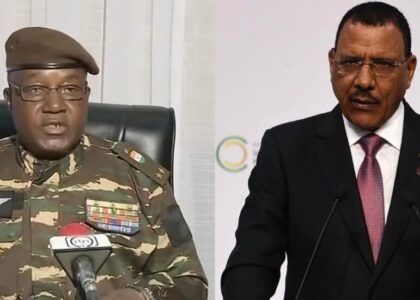The incessant molestation of Nigerian traders in Ghana highlights the problems associated with the Free Movement Protocol of the Economic Community of West African States (ECOWAS). Perhaps, no act attacks the core of the 1993 Reverse Treaty of ECOWAS and its “ECOWAS of people” vision than the imposition of municipal law restrictions on ECOWAS obligations by State parties. Aside the
express stipulations in the Reversed Treaty, (Article 5(2)) and other Protocols of ECOWAS, the use of municipal law by States to circumvent or negate their international obligation is a violation strongly frowned at by international law (see section 27 of the Vienna Convention on the Law of Treaties, 1969.
Protocol A/P.15/79 relating to Free Movement of Persons, Residence and Establishment along with its Supplementary Protocols – the 1985 Supplementary Protocol A/SP.1/7/85 on the Code of Conduct for the implementation of the Protocol on Free Movement of Persons, the Right of Residence and Establishment; the 1986 Supplementary Protocol A/SP.1/7/86 on the Second Phase (Right of Residence); the
1989 Supplementary Protocol A/SP.1/6/89, amending and complementing the provisions of article 7 of the Protocol on Free Movement, Right of Residence and Establishment; and the 1990 Supplementary Protocol A/SP.2/5/90 on the Implementation of the Third Phase (Right to Establishment) – forms the bedrock of
the free movement of persons within the ECOWAS region and their rights to reside and establish business activities within their host State party. This was well accentuated in the 1993 Revised Treaty.
It will be difficult to see how the current officially sanctioned assaults on Nigerian Traders in Ghana cohere with the obligations of Ghana under the Revised Treaty and the Free Movement Protocol. The requirements for “resident permit and standard control and Ghana Investment Promotion Council (GIPC) registration”
(which attracts a fee of One Million Dollars), are unilateral actions on the part of Ghana that ECOWAS must urgently assess against its Treaty and Protocols with a view to taking remedial actions, where necessary.
The unwillingness or inability of ECOWAS to take decisive actions in the face of various violations of its Treaty and Protocols made thereunder by the unilateral actions of State parties cannot but suggests to onlookers that the aim of ECOWAS
would remain a pipe dream in perpetuity.





